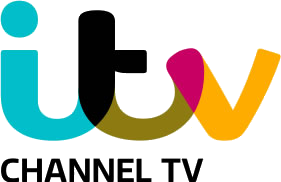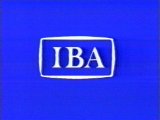
ITV is a British free-to-air public broadcast television network that is branded as ITV1 in most of the UK except for central and northern Scotland where it is branded as STV. It was launched in 1955 as Independent Television to provide competition and reduce the current monopoly to the then BBC Television. ITV is the oldest commercial network in the UK. Since the passing of the Broadcasting Act 1990, it has been legally known as Channel 3 to distinguish it from the other analogue channels at the time: BBC1, BBC2 and Channel 4.
The year 1958 in television involved some significant events. Below is a list of television-related events during 1958.

The Independent Television Authority (ITA) was an agency created by the Television Act 1954 to supervise the creation of "Independent Television" (ITV), the first commercial television network in the United Kingdom. The ITA existed from 1954 until 1972. It was responsible for determining the location, constructing, building, and operating the transmission stations used by the ITV network, as well as determining the franchise areas and awarding the franchises for each regional commercial broadcaster. The Authority began its operations on 4 August 1954, a mere four days after the Television Act received Royal Assent, under the Chairmanship of Sir Kenneth Clark. The Authority's first Director General, Sir Robert Fraser was appointed by Clark a month later on 14 September.

ABC Weekend TV was the popular name of the British broadcaster ABC Television Limited, which provided the weekend service in the Midlands and Northern England regions of the Independent Television (ITV) network from 1956 to 1968. It was one of the "Big Four" companies that between them produced the majority of ITV networked programmes during this period.

ITV Granada, formerly known as Granada Television, is the ITV franchisee for the North West of England and Isle of Man. From 1956 to 1968 it broadcast to both the north west and Yorkshire on weekdays only, as ABC Weekend Television was its weekend counterpart. Granada's parent company Granada plc later bought several other regional ITV stations and, in 2004, merged with Carlton Communications to form ITV plc.

ITV Channel Television, previously Channel Television, is a British television station which has served as the ITV contractor for the Channel Islands since 1962. It is based in Jersey and broadcasts regional programme for insertion into the network ITV schedule. Until November 2011, Channel Television was one of four ITV companies independent from ITV plc alongside the two STV regions in Scotland and UTV in Northern Ireland. The station has been owned by ITV plc since 2012 and the licence was transferred to ITV Broadcasting Limited in March 2017.

Associated-Rediffusion, later Rediffusion London, was the British ITV franchise holder for London and parts of the surrounding counties, on weekdays between 22 September 1955 and 29 July 1968. It was the first ITA franchisee to go on air, and one of the "Big Four" companies that between them produced the majority of ITV networked programmes during this period.
Regular television broadcasts in the United Kingdom started in 1936 as a public service which was free of advertising, which followed the first demonstration of a transmitted moving image in 1926. Currently, the United Kingdom has a collection of free-to-air, free-to-view and subscription services over a variety of distribution media, through which there are over 480 channels for consumers as well as on-demand content. There are six main channel owners who are responsible for most material viewed.

Independent Television News (ITN) is a UK-based media production and broadcast journalism company. ITN is based in London, with bureaus and offices in Beijing, Brussels, Jerusalem, Johannesburg, New York, Paris, Sydney and Washington, D.C.

The Independent Television Commission (ITC) licensed and regulated commercial television services in the United Kingdom between 1 January 1991 and 28 December 2003.

ITV1 is a British free-to-air public broadcast television channel owned and operated by the British media company ITV plc. It provides the Channel 3 public broadcast service across all of the United Kingdom except for the central and northern areas of Scotland where STV provides the service.

Thames Television, commonly simplified to just Thames, was a franchise holder for a region of the British ITV television network serving London and surrounding areas from 30 July 1968 until the night of 31 December 1992. Thames Television broadcast from 09:25 Monday morning to 17:15 Friday afternoon at which time it would hand over to London Weekend Television (LWT).

The Independent Broadcasting Authority (IBA) was the regulatory body in the United Kingdom for commercial television – and commercial and independent radio broadcasts. The IBA came into being when the Sound Broadcasting Act 1972 gave the Independent Television Authority responsibility for organising the new Independent Local Radio (ILR) stations. The Independent Television Commission formally replaced the IBA on 1 January 1991 in regulatory terms; however, the authority itself was not officially dissolved until 2003.

There are several different types of mass media in the United Kingdom: television, radio, newspapers, magazines and websites. The United Kingdom is known for its large music industry, along with its new and upcoming artists. The country also has a large broadcasting, film, video games and book publishing industries.
The history of ITV, the United Kingdom and Crown Dependencies "Independent Television" commercial network, goes back to 1955.

The Broadcasting Act 1990 is an Act of the Parliament of the United Kingdom, which aimed to liberalise and deregulate the British broadcasting industry by promoting competition; an example being ITV, in particular, which had earlier been described by Margaret Thatcher as "the last bastion of restrictive practices". The Act was initiated in part due to a 1989 European Council Directive (89/552), also known as the Television Without Frontiers directive, and came about after the findings from the Peacock Committee.
Analogue terrestrial television in the United Kingdom was originally the method by which the significant majority of viewers in the UK, the Channel Islands and the Isle of Man received television. Analogue terrestrial television broadcasts have fully ceased in the UK with Northern Ireland being the last region to have ceased transmission analogue terrestrial television broadcasts. Northern Ireland switched off the last analogue television signals, making all of the United Kingdom only capable of receiving digital television, in the early hours of 24 October, 2012. It has been completely replaced by digital terrestrial television and other non-terrestrial means as of the end of 2012.
In the 1960s and 1970s, an envisioned fourth UK television service was popularly referred to as ITV2, before the launch of Channel 4 in November 1982.
Kemsley-Winnick Television was a consortium formed in 1954 to bid for the new commercial television broadcasting licences in the United Kingdom.
This is a timeline of the history of the British broadcaster Channel Television. It provides the ITV service for the Channel Islands.












